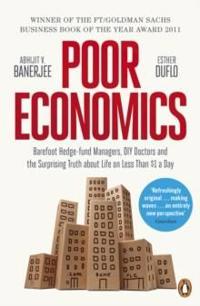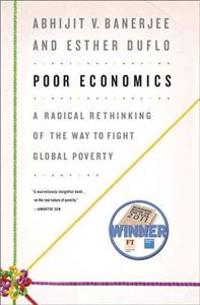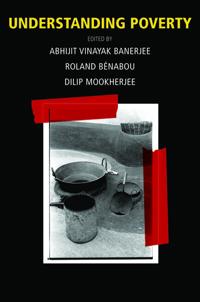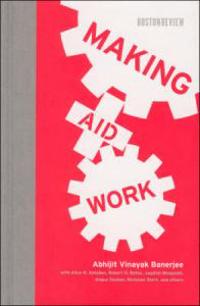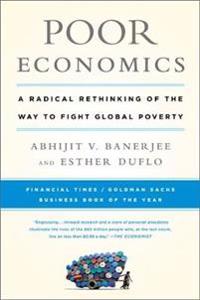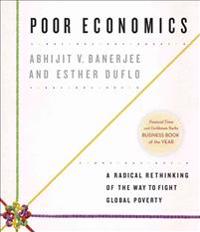Poor Economics (Häftad)
avAbhijit Banerjee, Esther Duflo
ISBN: 9780718193669 - UTGIVEN: 201203This title is winner of the FT Goldman Sachs Business Book of the Year Award 2011. Why would a man in Morocco who doesn't have enough to eat buy a television? Why do the poorest people in India spend 7 percent of their food budget on sugar? Does having lots of children actually make you poorer? This[...]
Poor Economics (Inbunden)
avAbhijit Banerjee, Esther Duflo
ISBN: 9781586487980 - UTGIVEN: 201106This title comes from the award-winning founders of the unique and remarkable Abdul Latfi Jameel Poverty Action Laboratory at MIT, a transformative reappraisal of the world of the extreme poor, their lives, desires and frustrations. Billions of government dollars, and thousands of charitable organiz[...]
Understanding Poverty (Häftad)
avAbhijit Vinayak Banerjee, Roland Benabou, Dilip Mookherjee
ISBN: 9780195305203 - UTGIVEN: 200605Understanding poverty and what to do about it, is perhaps the central concern of all of economics. Yet the lay public almost never gets to hear what leading professional economists have to say about it. This volume brings together twenty-eight essays by some of the world leaders in the field, who we[...]
Making Aid Work (Inbunden)
avAbhijit Vinayak Banerjee
ISBN: 9780262026154 - UTGIVEN: 2007-04With more than a billion people now living on less than a dollar a day, and with eight million dying each year because they are simply too poor to live, most would agree that the problem of global poverty is our greatest moral challenge. The large and pressing practical question is how best to addre[...]
Poor Economics (Häftad)
avAbhijit Vinayak Banerjee, Esther Duflo
ISBN: 9781610390934 - UTGIVEN: 201204Why do the poor borrow to save? Why do they miss out on free life-saving immunizations, but pay for unnecessary drugs? In "Poor Economics," Abhijit V. Banerjee and Esther Duflo, two practical visionaries working toward ending world poverty, answer these questions from the ground. In a book the "Wall[...]
Poor Economics: A Radical Rethinking of the Way to Fight Global Poverty (CD-bok)
avAbhijit Vinayak Banerjee, Esther Duflo
ISBN: 9781611747515 - UTGIVEN: 2012-01Billions of government dollars, and thousands of charitable organizations and NGOs, are dedicated to helping the world's poor. But much of their work is based on assumptions that are untested generalizations at best, harmful misperceptions at worst. Abhijit Banerjee and Esther Duflo have pioneered t[...]

